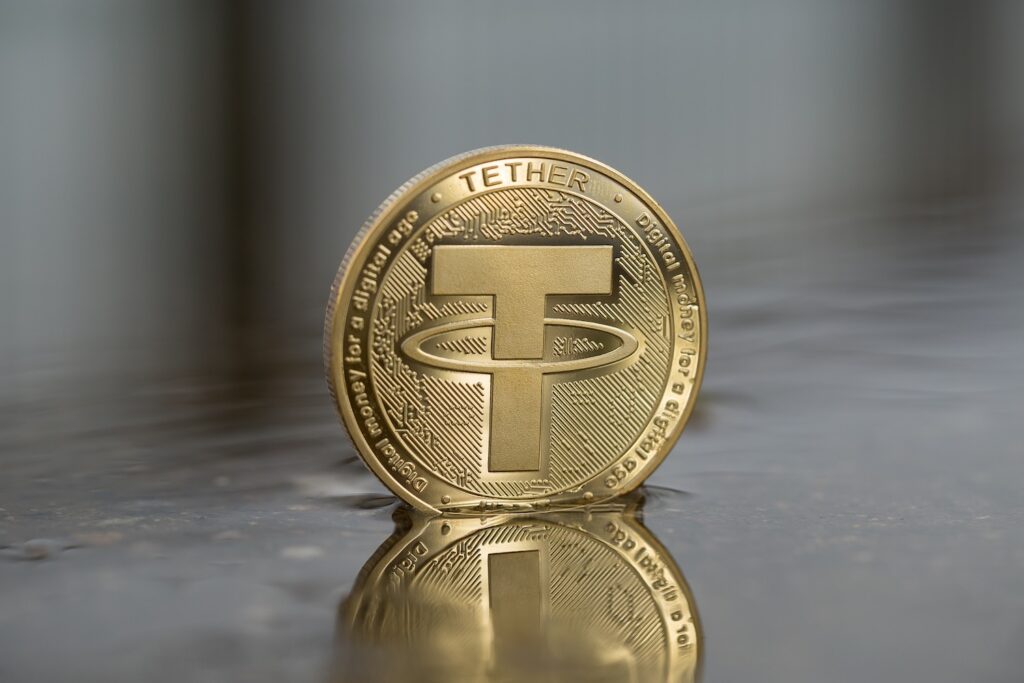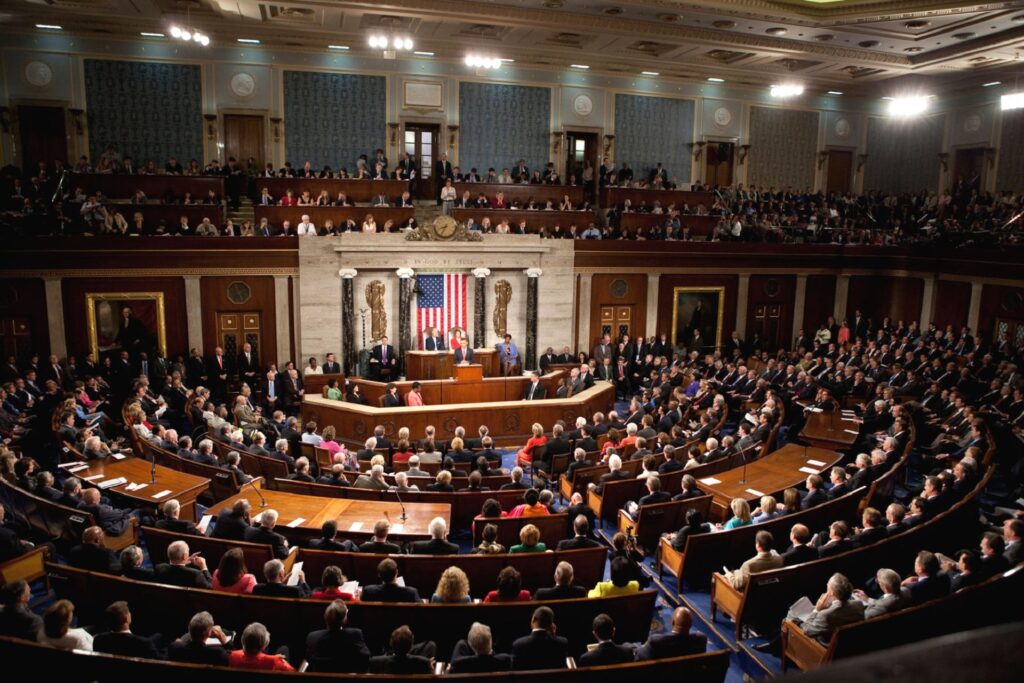The United Kingdom’s National Audit Office (NAO) has raised concerns regarding the effectiveness of the Financial Conduct Authority (FCA) in regulating the cryptocurrency industry, as detailed in their latest report titled ‘Financial services regulation: adapting to change.’
The NAO’s report highlights the FCA’s slow response to illicit activities within the crypto sector, sparking concerns in the financial landscape.
One notable issue pointed out by the NAO is the extended timeframe it took the FCA to take action against unlawful operators of cryptocurrency ATMs.
The NAO reported that it took nearly three years for the FCA to initiate significant enforcement measures, which culminated in the shutdown of 26 crypto ATMs on July 11, as reported by Cointelegraph.
The NAO’s report underscores this delay, underscoring that, “While the FCA has mandated crypto-asset firms to comply with anti-money laundering regulations since January 2020 and initiated supervision efforts involving unregistered firms, it did not commence enforcement measures against illicit crypto ATM operators until February 2023.”
The NAO attributes the delay in registering crypto firms seeking FCA approval to a shortage of specialized cryptocurrency expertise within the authority.
Their report highlights this concern, stating, “A lack of crypto skills within the FCA led to prolonged registration of crypto-asset firms under money laundering regulations.”
READ MORE: Babylon Chain Secures $18 Million Series A Funding to Revolutionize Bitcoin Staking
This issue becomes even more pressing when considering that, as of January 27, the FCA had approved only 41 out of 300 crypto firm applications seeking regulatory clearance since the rules were implemented in January 2020.
Furthermore, the FCA has recently issued guidance materials to assist cryptocurrency firms in understanding the new regulations related to the promotion of crypto services.
On November 2, Cointelegraph reported the introduction of “finalized non-handbook guidance” by the FCA to ensure compliance with these new rules, which specifically govern how crypto companies can market their services to customers.
Among the key aspects addressed in the FCA’s guidance are concerns regarding crypto firms making claims about the ease of using cryptocurrencies without adequately highlighting associated risks.
Additionally, the guidance emphasizes the importance of making risk warnings highly visible, as some firms have previously used small fonts that can easily be overlooked.
In conclusion, the NAO has expressed reservations about the FCA’s ability to effectively oversee the cryptocurrency industry, citing delays in enforcement actions and a shortage of cryptocurrency expertise within the organization.
These concerns arise at a time when the FCA is introducing new rules and guidance aimed at improving transparency and consumer protection within the crypto space.
Tether, the issuer of the popular stablecoin, has recently taken a significant step toward enhancing its cooperation with law enforcement and regulatory agencies.
In a blog post dated December 9th, the company announced the implementation of a voluntary wallet-freezing policy, aimed at bolstering its efforts to comply with global regulations and law enforcement requests.
Since December 1st, Tether has been providing controls on the secondary market to freeze any activity associated with individuals or entities listed on the United States Office of Foreign Assets Control (OFAC) Specially Designated Nationals (SDN) List.
This list comprises companies and individuals connected to sanctioned countries. Tether’s move is part of a broader proactive approach to align itself more closely with regulatory bodies worldwide.
The U.S. Department of the Treasury utilizes the SDN List to monitor and prevent cryptocurrency transactions that may be linked to illicit activities, such as terrorism financing and the unauthorized distribution of fentanyl.
Notably, Tether has already frozen wallets that were previously added to the SDN List, marking a departure from its earlier stance on this matter.
READ MORE: Meanwhile Group Launches Innovative Bitcoin Private Credit Fund for Institutional Investors
In August 2022, the company had stated that it would not proactively freeze addresses associated with sanctioned Tornado Cash transactions unless explicitly instructed to do so by law enforcement agencies.
Tornado Cash had come under scrutiny for allegedly facilitating over $7 billion in cryptocurrency money laundering since 2019, as per the OFAC.
Paolo Ardoino, CEO of Tether, emphasized the importance of these measures, saying, “By executing voluntary wallet address freezing of new additions to the SDN List and freezing previously added addresses, we will be able to further strengthen the positive usage of stablecoin technology and promote a safer stablecoin ecosystem for all users.”
Tether, headquartered in Hong Kong, is responsible for the stablecoin of the same name.
The stablecoin has gained immense popularity, with its market capitalization recently reaching $90 billion, even amidst increased regulatory scrutiny of cryptocurrency firms in the United States.
Tether’s stablecoin continues to dominate the market, holding nearly 70% of the stablecoin market share.
In summary, Tether’s decision to proactively freeze wallet addresses associated with sanctioned individuals and entities reflects its commitment to compliance and cooperation with regulatory authorities, further solidifying its position in the stablecoin market.
On December 8, the United States Department of Justice (DOJ) unsealed Binance’s compliance commitments, shedding light on a significant level of government oversight of the cryptocurrency exchange’s operations and business dealings.
In a recent analysis posted on X (formerly Twitter), John Reed Stark, a former Securities and Exchange Commission (SEC) official, described Binance’s new compliance commitments as an “exhaustive list” that resembles a “consulting firm’s wish list,” and he suggested that these commitments could potentially lead to the platform’s shutdown.
These obligations are outlined in an 11-page document and entail full cooperation with authorities, granting them access to documents, records, and resources upon request.
This access extends to information related to Binance’s past employees, agents, intermediaries, consultants, representatives, distributors, licenses, contractors, suppliers, and joint venture partners, as noted by Stark.
Various sections of the DOJ’s criminal division will closely monitor Binance’s activities, including those related to money laundering and asset recovery, national security, counterintelligence and export control, as well as the office of the United States Attorney for the Western District of Washington.
As previously disclosed, Binance’s plea deal with the U.S. government includes a five-year oversight period by the Financial Crimes Enforcement Network (FinCEN).
This unprecedented level of oversight is expected to come with a substantial financial cost for the exchange.
READ MORE: Babylon Chain Secures $18 Million Series A Funding to Revolutionize Bitcoin Staking
Stark commented, “Binance’s settlement requires it to offer years of instantaneous access, audit, examination, and inspection to DOJ, FinCEN, and all types of financial regulators and law enforcement, exposing the company — and its customers — to a 24/7, 365-days-a-year financial colonoscopy.”
Binance and its former CEO, Changpeng “CZ” Zhao, have already admitted to violating U.S. laws related to money laundering and terror financing, agreeing to pay $4.3 billion in fines on November 21.
These newly unsealed court records are part of a recent filing by the U.S. SEC, which incorporates the DOJ’s enforcement actions and settlements to strengthen its case against Binance and Zhao.
The SEC had initially filed 13 charges against Binance on June 5, accusing the exchange of unregistered offers and sales of various tokens and products.
The SEC also alleges that Binance failed to register its Binance.com platform as an exchange or broker-dealer clearing agency.
With this latest filing, the regulator is seeking judicial notice of the facts presented in Binance’s settlement, essentially asking the court to acknowledge these facts as true without formal evidence presentation.
The SEC is leveraging the settlement to challenge Binance’s motion to dismiss the case, thereby undermining the exchange’s arguments regarding its presence and operations in the U.S. over the past years.
According to Binance’s settlement with the DOJ, the exchange had over three million U.S. customers by March 2018, with approximately 30% of its web traffic originating from the United States as of June 2019.
Negotiators from the European Parliament and Council achieved a significant breakthrough on Friday, December 8th, by reaching a provisional agreement on the regulation of artificial intelligence (AI).
This landmark accord addresses various facets of AI deployment, including governmental use in biometric surveillance, regulations concerning AI systems such as ChatGPT, and transparency protocols prior to market entry.
It encompasses technical documentation, compliance with European Union copyright regulations, and the sharing of training content summaries.
The European Union is poised to become the first supranational authority to institute comprehensive AI regulations that promote its beneficial utilization while safeguarding against potential risks.
The agreement was the culmination of an exhaustive 24-hour debate on December 8th, followed by 15 hours of intense negotiations.
Under the agreement’s provisions, AI models with significant impacts and systemic risks are obligated to assess and mitigate those risks, undergo adversarial testing for system resilience, report incidents to the European Commission, ensure cybersecurity measures, and disclose information on energy efficiency.
The European Parliament emphasized the importance of proper implementation, signaling its intention to closely monitor and support innovative businesses with the establishment of sandboxes and effective regulations, particularly for the most potent AI models.
READ MORE: Bitcoin Rally Continues But Concerns About Pullback Loom
Following the agreement, Thierry Breton, European Commissioner for Internal Market, celebrated the historic moment, declaring on X (formerly Twitter), “Historic! The #AIAct is much more than a rulebook — it’s a launchpad for EU startups and researchers to lead the global AI race. The best is yet to come!”
According to the agreed-upon terms, general-purpose AI systems carrying risks must adhere to specific codes of conduct.
Furthermore, governments are restricted in their use of real-time biometric surveillance, which is only permitted in specific instances, such as certain types of crimes or severe public security threats.
The agreement explicitly bans cognitive behavioral manipulation, the scraping of facial images from the internet or CCTV footage, social scoring, and biometric systems inferring personal details, including beliefs and orientations.
It also ensures consumers’ rights to file complaints and receive explanations in case of violations.
Penalties for infringements range from 7.5 million euros ($8.1 million) or 1.5% of a company’s turnover to 35 million euros ($37.7 million) or 7% of their global turnover, depending on the nature of the violation and the company’s size.
The European Parliament has indicated that the agreed-upon text will undergo formal adoption by both the parliament and council before becoming EU law.
The internal market and civil liberties committees of the parliament will conduct a vote on the agreement during an upcoming meeting.
A group of bipartisan United States Senators has introduced legislation in the Senate with the aim of countering the role of cryptocurrencies in financing terrorism, specifically referencing the October 7th attack by Hamas on Israel.
Senators Mitt Romney, Mark Warner, Mike Rounds, and Jack Reed announced the introduction of the Terrorism Financing Prevention Act on December 7th.
This proposed bill seeks to expand U.S. sanctions to include individuals or entities that provide funding to terrorist organizations using either cryptocurrency or traditional fiat currencies.
Senator Romney emphasized that this legislation would empower the U.S. Treasury Department to address “emerging threats involving digital assets” in the aftermath of the October 7th attack and activities associated with the terrorist group Hezbollah.
Senator Rounds stressed the importance of equipping the Department of the Treasury with the necessary tools to combat modern terrorism threats.
He explained that the Terrorism Financing Prevention Act takes practical steps towards combating terrorism by imposing sanctions on foreign financial institutions and foreign digital asset companies that assist these groups in carrying out their acts of violence.
Hamas’ attack on Israel has accelerated the need for the United States to address the role of cryptocurrencies in financing terrorism.
READ MORE: Co-founder of Terraform Labs Appeals Extradition Decision in Montenegro
The bipartisan bill aims to broaden the scope of sanctions to cover all terrorist organizations, including Hamas, while also addressing threats linked to digital assets.
The 10-page bill includes provisions enabling the U.S. Treasury to prohibit transactions with a “foreign digital asset transaction facilitator” that is listed as a sanctioned entity.
Notably, the Treasury’s Office of Foreign Assets Control had already sanctioned a crypto operator based in Gaza on October 18th and had added North Korean nationals to its sanctions list for using cryptocurrency mixers to launder funds.
This proposed legislation from the Senators aligns with the concerns voiced by many U.S. lawmakers regarding the alleged role of cryptocurrencies in financing terrorist groups.
In October, around a week after the Hamas attack on Israel, Senator Elizabeth Warren and over 100 lawmakers signed a letter calling for action to effectively curb illicit crypto activity used for funding terrorist organizations.
Senator Warren claimed in a hearing on December 6th that North Korea had funded approximately half of its missile program using proceeds from crypto-related criminal activities.
However, it’s worth noting that blockchain analytics firm Elliptic reported in October that there was “no evidence” indicating that Hamas had received a substantial volume of cryptocurrency donations to finance its attacks.
Krist Novoselic, the co-founder and bassist of the iconic rock band Nirvana, recently took center stage in a shareholder proposal presentation aimed at encouraging Microsoft to reassess its approach to generative artificial intelligence (AI).
This initiative, known as Shareholder Proposal 13: Report on AI Misinformation and Disinformation, was submitted by Arjuna Capital on behalf of Krist Novoselic and various other shareholder groups.
The proposal, as stated in a press release, revolves around Novoselic’s concerns that Microsoft has not thoroughly examined the business and societal implications of generative AI amidst its rapid adoption of this technology.
One of the pivotal concerns highlighted in the proposal is the potential for Microsoft-developed or -endorsed AI models to inadvertently contribute to the proliferation of disinformation and misinformation.
This is a pressing issue, considering the profound impact such false information can have on society.
The proposal also raises questions about the applicability of Section 230, a law that provides internet hosts and users with limited protections against liability for content generated by third parties.
The proposal questions whether these protections would extend to content produced by Microsoft’s own generative AI systems.
READ MORE: JPMorgan CEO Jamie Dimon Faces Backlash from Crypto Community Over Bitcoin Crime Claims
During his presentation, Novoselic posed a thought-provoking question: “What happens when society increasingly relies on information generated by Microsoft’s AI-powered Bing, a platform found to provide inaccurate answers ten percent of the time?”
He also pointed out that earlier in the year, experts had called for a six-month pause on AI development, a plea that Microsoft, along with the rest of the industry, chose to disregard.
According to Novoselic, Microsoft’s haste to bring AI to market seemed to prioritize short-term profits over long-term success, raising concerns about the potential consequences of such a strategy.
Microsoft’s board responded to the proposal by asserting that they had already addressed its request through existing and forthcoming reporting.
However, Arjuna Capital argued that the proposal aimed to elicit information that went beyond the generic commitments to responsible AI found in these reports.
In particular, the shareholders behind the proposal sought to compel Microsoft to conduct a comprehensive and in-depth assessment of the long-term risks associated with generative AI.
Despite Microsoft’s recommendation that shareholders reject the proposal, it ultimately failed to garner sufficient support in a subsequent shareholder vote.
Taiwan’s central bank has recently completed a feasibility study on the introduction of a wholesale central bank digital currency (CBDC) and is now actively considering its implementation.
Deputy Governor Mei-lie Chu announced on December 7th that the central bank is soliciting feedback from both businesses and academics while continuing to focus on the design of the CBDC platform.
During a comprehensive speech at a banking event, Chu introduced the concept of “Banking 4.0,” which she described as the integration of banking services into customers’ daily lives.
This integration involves harnessing the power of artificial intelligence and advanced mobile and digital technology within the banking sector, with particular emphasis on CBDCs.
Chu referenced research conducted by the Bank for International Settlements, highlighting the advantages of CBDCs and the tokenization of real-world assets.
She emphasized the role of a central bank currency with clearing finality as the foundation for tokenization, with a particular focus on unified ledger technology.
Unified ledger technology operates on a single ledger within a “partitioned data environment,” facilitating interoperability among different systems.
READ MORE: Binance Founder CZ Zhao Ordered to Stay in U.S. Until Sentencing in Money Laundering Case
According to CBDC Tracker, Taiwan initiated its CBDC research in 2020 and has made significant progress, especially in the development of a retail CBDC.
It has already conducted successful pilot tests involving consumers and five commercial banks.
Chu acknowledged that bank disintermediation and interoperability with existing payment systems remain key challenges in Taiwan’s CBDC research.
Consequently, the central bank is adopting a cautious approach to further CBDC development, refraining from setting a specific timeline for a final decision.
Additionally, Taiwan’s Fubon Bank has collaborated with Ripple and the Hong Kong Monetary Authority on a reverse mortgage pilot project, utilizing Hong Kong’s e-HKD CBDC. Furthermore, the bank has successfully integrated China’s digital yuan, known as the e-CNY, into its banking platform.
In summary, Taiwan’s central bank is actively exploring the feasibility of a wholesale CBDC, with a focus on incorporating advanced technology into banking services.
While challenges persist, the country has made significant strides in CBDC research, including successful pilot projects and collaborations with international partners.
The Ministry of Finance in Palau is celebrating the successful completion of the first phase of the Palau Stablecoin (PSC) Program, setting the stage for future developments.
This groundbreaking initiative aims to introduce the PSC as a national stablecoin, pegged to the United States dollar, offering a promising glimpse into the digital currency landscape.
In collaboration with Ripple and utilizing the XRP Ledger central bank digital currency (CBDC) platform, the three-month PSC project took flight, involving 168 volunteers drawn from the government workforce.
These volunteers were granted 100 PSC each, which they could spend at local retailers who participated in the program.
Impressively, both volunteers and retailers lauded their experience with the PSC, signaling its potential as a viable currency.
The PSC transactions were remarkably user-friendly, with participants making purchases through their smartphones by scanning QR codes or manually inputting wallet addresses.
Only retailers had the privilege of converting their PSC holdings into U.S. dollars, which is Palau’s official currency.
Importantly, the PSC was fully backed by $20,000 held in a Tier 1 Federal Deposit Insurance Corporation (FDIC) accredited U.S. bank.
READ MORE: Co-founder of Terraform Labs Appeals Extradition Decision in Montenegro
One of the key advantages highlighted in the study is the reduction in financial transaction fees.
Moreover, the PSC’s adoption promises to lower Palau’s carbon footprint, as it diminishes the need for physical cash.
Additionally, the inclusive nature of the PSC is expected to benefit residents, especially those living on islands without access to traditional banking services.
The Ministry of Finance proudly stated, “The Republic of Palau continues to demonstrate its commitment to digital innovation and financial modernization with its Stablecoin program.”
Future phases of the project will prioritize education, legal aspects, and regulatory frameworks. Users have expressed interest in future use cases, particularly peer-to-peer transfers and remittances, further enhancing the utility of the PSC.
Palau, a nation with approximately 18,000 inhabitants, embarked on its digital currency journey in 2021 with Ripple’s involvement from the outset.
In May, Ripple unveiled its CBDC platform, while Binance played a pivotal role in assisting Palau in implementing a digital identification program.
The PSC program kicked off in July and concluded in September, setting the stage for a promising future in the realm of digital currency in Palau.
Lead attorney Adam Moskowitz, known for his involvement in civil cases related to crypto companies, has submitted a motion to depose former Binance CEO Changpeng “CZ” Zhao.
This legal move, filed on December 8th in the United States District Court for the Southern District of Florida Miami Division, is a significant development in a $1 billion lawsuit against Zhao, Binance, and various crypto influencers. The lawsuit had been put on hold by court order back in August.
Moskowitz emphasized the importance of Zhao’s testimony, stating that it is “crucial to the claims and defenses of all parties” in the ongoing legal battle.
His law firm has a track record of representing clients in cases against prominent crypto firms and related entities.
Previously, he served as counsel for victims of FTX’s collapse in a lawsuit targeting celebrities who had endorsed the crypto exchange.
Additionally, he was involved in a suit alleging that investors suffered losses due to soccer star Cristiano Ronaldo’s promotion of Binance’s nonfungible tokens.
In typical cases where CZ is named as a defendant, a notice for his deposition would be sent.
However, in this instance, both parties have agreed to postpone the discovery process until the judge makes a ruling on Binance’s request to litigate their class action before the AAA arbitration association.
READ MORE: JPMorgan CEO Jamie Dimon Faces Backlash from Crypto Community Over Bitcoin Crime Claims
Moskowitz explained, “Regardless of where we end up, CZ’s testimony will be crucial for all parties.”
The motion to depose Zhao was prompted by a Washington judge’s order for him to remain in the United States until his sentencing in February 2024.
In November, U.S. authorities announced a $4.3 billion settlement with Binance, leading to CZ stepping down as CEO and pleading guilty to one felony charge.
Moskowitz acknowledged the uncertainty surrounding Zhao’s potential sentence, stating, “We have no idea how long CZ will be sentenced to prison, could be 60 years or no years.”
He emphasized that obtaining a deposition from prison, if necessary, would be challenging.
Moskowitz also noted that Zhao’s guilty plea to federal charges, which implicated a lack of safeguards during his tenure as Binance CEO, could bolster the plaintiffs’ claims in the civil suit.
The lawsuit alleges that Binance promoted unregistered securities, although the U.S. Securities and Exchange Commission (SEC) was not part of the settlement with Zhao, Binance, and the government.
Regarding the ongoing SEC litigation against CZ and Binance, Moskowitz pointed out, “The SEC certainly has not slowed down their own litigation vs. CZ and Binance and still allege that the BNB token is an unregistered security, so there are $4 billion in alleged values, that really could be zero in one minute.”
The outcome of Moskowitz’s motion remains uncertain, given that Zhao is no longer the CEO of Binance and has stepped back from its leadership.
At the time of publication, Cointelegraph had not received a response from Binance.
Despite the government of El Salvador’s continuous endeavors to foster widespread cryptocurrency adoption within its borders, a recent report from CoinGecko has shed light on the limited number of cryptocurrency owners in the nation.
The report, released on December 7, reiterates that El Salvador remains the only country in the world actively using cryptocurrencies as legal tender, specifically Bitcoin.
However, it reveals that only a relatively small percentage of its population currently holds Bitcoin.
According to data sourced from Triple-A, approximately 109,175 individuals own Bitcoin in El Salvador, a number that pales in comparison to the nation’s total population of 6.36 million, representing approximately 1.72% of the populace.
This statistic highlights the challenges the country faces in achieving widespread cryptocurrency adoption, despite its groundbreaking legislative efforts.
Furthermore, El Salvador finds itself ranked 55th on the global cryptocurrency adoption index. Surprisingly, even countries that have imposed bans on cryptocurrencies are witnessing a faster growth rate in terms of ownership.
In a stark contrast, China, which has implemented a ban on cryptocurrencies, reports a higher percentage of its citizens owning digital assets.
The CoinGecko report suggests that an estimated 4.08% of China’s total population, equivalent to 58 million people, currently own cryptocurrencies.
READ MORE: Binance Founder CZ Zhao Ordered to Stay in U.S. Until Sentencing in Money Laundering Case
This discrepancy underscores the disparities in cryptocurrency ownership and adoption between these two nations.
Salvadoran President Nayib Bukele recently announced that the country’s combined Bitcoin investments have reached $131 million.
As of December 4, this translated to a net profit of $3.6 million, resulting in a total gain of 2.84%.
These numbers highlight the potential for growth and financial benefits associated with cryptocurrency investments, despite the relatively low ownership rates.
Meanwhile, the government of El Salvador remains committed to bolstering efforts to increase cryptocurrency investment within the nation.
On December 8, reports emerged of a fresh citizenship-by-investment initiative launched by the country.
This initiative offers a residency visa and a path to citizenship for individuals willing to invest $1 million in Bitcoin or Tether within El Salvador’s borders.
This move underscores the government’s determination to promote cryptocurrency adoption and attract investment, even as ownership rates continue to lag behind their expectations.













